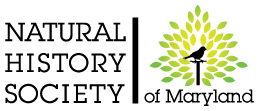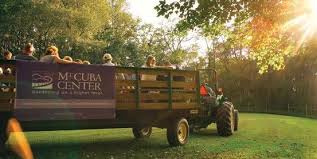Let’s take a fall tour of Mt. Cuba and its more than 1,000 species of native plants, many threatened by extinction. We begin with a two-hour in-depth look at the gardens. Discover how to apply sustainable gardening practices, and learn about environmental topics such as climate change, systems thinking, and consciously sourcing native plants for your region. We are fortunate to stop by the trial garden and expand our learning with a chat with a horticulturist, learning about their current research projects.
We will picnic in the garden for lunch. After eating, we’ll load up for a hayride to admire the fall leaves in the natural area of the center. Topics discussed during the hayride may include land management strategies, conservation efforts and research, and the state of their restoration projects. We will return around 2 pm. After the tour concludes, you are welcome to explore more of Mt. Cuba Center on your own until closing.
Mt. Cuba Center’s native plant collection was established by the Copeland family, who were pioneers in conservation. Many of their plants are grown from seeds collected in the wild, propagated in their greenhouse, and then cultivated and displayed in the gardens. The research team evaluates plants and related cultivars for horticultural and ecological value, highlighting what those plants provide to the ecosystem. In addition, Mt. Cuba Center’s greenhouse studies how to propagate difficult or underutilized plants so they can be re-established in the natural landscape. Adding new cultivars of native plants expands the availability of high-quality, improved plants for the gardening community. Plant introductions made by Mt. Cuba Center are typically sent to the nursery industry to be propagated and distributed for sale to the public.
If you would like to set up a carpool, please follow this link. A convenient meeting place is NHSM.
https://www.groupcarpool.com/t/pm3voe
Difficulty: Easy to moderate on mown paths and trails with gradual incline
Remember to
- Dress according to the weather. Layers with non-cotton clothing work best. For sunny days, a hat with a brim may be needed.
- Wear sturdy closed-toe hiking boots or sneakers with non-slip soles that can safely handle slippery surfaces in case of rain.
- Bring lunch, water, and for your camera, an extra battery, an extra memory card, and a lens-cleaning cloth.
- Bring binoculars and a magnifying glass or a hand lens, if you’d like to bird or bug.
- No pets, please.
The exact meeting space will be provided when registration and payment are complete.
For a virtual tour of the property, click here https://mtcubacenter.org/wp-content/uploads/2016/12/reencoded/mcc-fall-intro.mp4
Cancellation Policy: NHSM Field Experiences – Cancellations made seven or more days in advance of the field experience will receive a refund (minus a $5 processing fee). Cancellations made within the week of the event will not receive a refund but can be transferred to a friend.
For questions, please email Jayne at JAsh@marylandnature.org.
For more information on Mt. Cuba’s current research, click here https://mtcubacenter.org/research/trial-garden/.









